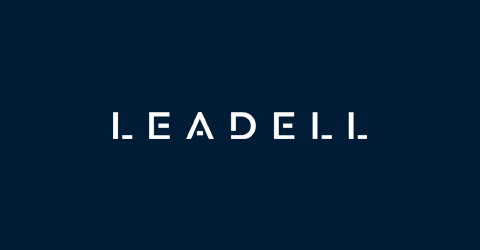Best E-commerce & Internet Law Lawyers in Republic of Lithuania
Share your needs with us, get contacted by law firms.
Free. Takes 2 min.
Or refine your search by selecting a city:
List of the best lawyers in Republic of Lithuania
About E-commerce & Internet Law in Republic of Lithuania
In the Republic of Lithuania, E-commerce and Internet Law is a burgeoning field reflecting the rapid growth of digital transactions and online interactions. With increasing reliance on digital platforms, the Lithuanian government has established a comprehensive legal framework to regulate e-commerce activities and ensure consumer protection, data privacy, and fair trade practices online. This legal framework aligns with European Union standards, offering a reliable legal environment for businesses and consumers alike.
Why You May Need a Lawyer
Navigating E-commerce & Internet Law can be complex due to its dynamic nature and overlapping regulations. Here are several scenarios where legal assistance might be necessary:
- Setting up or expanding an online business and ensuring compliance with local and EU regulations.
- Handling disputes arising from online transactions, whether as a vendor or consumer.
- Ensuring compliance with data protection laws, including GDPR, in collecting and processing personal data.
- Drafting or reviewing terms of service, privacy policies, and other legal documents for websites and online platforms.
- Dealing with intellectual property issues, such as copyright or trademark disputes in the digital space.
- Resolving issues related to online defamation or digital rights management.
Local Laws Overview
Lithuania has implemented a variety of laws that govern e-commerce and internet-related activities. Key aspects include:
- Consumer Protection Laws: These ensure that consumers have rights regarding information disclosure, returns, and transaction security.
- Data Protection Regulations: Under GDPR, businesses must protect personal data and ensure privacy rights are upheld.
- Electronic Communications Act: Regulates electronic services, ensuring transparency and reliability of online communications.
- Intellectual Property Rights: Provides protection for digital works, including copyright and trademark enforcement online.
- Electronic Signatures and Authentication: These ensure the legality and recognition of digital agreements and transactions.
Frequently Asked Questions
What is considered personal data under GDPR in Lithuania?
Personal data refers to any information relating to an identified or identifiable natural person, such as names, addresses, email, and other identifiers.
What are the legal requirements for starting an e-commerce business in Lithuania?
Entrepreneurs must register their business, comply with Lithuanian and EU regulations on VAT, ensure consumer protection standards, and adhere to data privacy laws.
Is it necessary to have a Lithuanian version of an e-commerce website?
Yes, businesses operating in the Lithuanian market are required to provide key information in the Lithuanian language to comply with consumer protection laws.
How are online disputes between consumers and businesses typically resolved?
Disputes can be resolved through online dispute resolution platforms, mediation, or, if necessary, legal proceedings in relevant courts.
How can businesses ensure compliance with data protection laws?
Businesses should implement robust data management policies, seek regular legal advice, and ensure all data processing activities are transparent and documented.
Are electronic signatures legally binding in Lithuania?
Yes, electronic signatures are legally binding and considered equivalent to written signatures, provided they meet certain authenticity and integrity criteria.
What should be included in an e-commerce website's terms of service?
The terms of service should cover the use of the site, disclaimer of liability, privacy policy, consumer rights, and company contact information.
How does VAT work for e-commerce in Lithuania?
E-commerce businesses must adhere to VAT regulations, which involve registration, accurate accounting, and reporting of VAT on sales.
Can a business face penalties for non-compliance with internet law?
Yes, failure to comply with e-commerce regulations can result in fines, legal action, or business suspension by regulatory authorities.
What rights do consumers have when shopping online in Lithuania?
Consumers have rights to clear information about products/services, withdrawal from purchases within 14 days, and protection against fraud or misleading practices.
Additional Resources
For those seeking further information or assistance, consider consulting the following resources:
- The State Consumer Rights Protection Authority: Provides guidance on consumer rights and handles consumer disputes.
- The Communications Regulatory Authority of the Republic of Lithuania (CRA): Offers oversight and enforcement of electronic communications services.
- Information Society Development Committee: Implements policies for developing online services and innovation.
- European Commission's E-commerce Directive: Offers EU-wide regulations and guidelines that also apply to Lithuania.
Next Steps
If you find yourself needing legal assistance in the realm of E-commerce & Internet Law, consider taking the following steps:
- Identify the specific legal issue or area where guidance is needed.
- Consult with a qualified lawyer specializing in E-commerce & Internet Law to understand your rights and obligations.
- Prepare relevant documents, such as contracts, policies, and any correspondence related to your issue.
- Stay informed by attending workshops or webinars offered by legal professionals or relevant governmental bodies in Lithuania.
- Develop a checklist or action plan to ensure compliance with applicable regulations as advised by your legal counsel.
Lawzana helps you find the best lawyers and law firms in Republic of Lithuania through a curated and pre-screened list of qualified legal professionals. Our platform offers rankings and detailed profiles of attorneys and law firms, allowing you to compare based on practice areas, including E-commerce & Internet Law, experience, and client feedback.
Each profile includes a description of the firm's areas of practice, client reviews, team members and partners, year of establishment, spoken languages, office locations, contact information, social media presence, and any published articles or resources. Most firms on our platform speak English and are experienced in both local and international legal matters.
Get a quote from top-rated law firms in Republic of Lithuania — quickly, securely, and without unnecessary hassle.
Disclaimer:
The information provided on this page is for general informational purposes only and does not constitute legal advice. While we strive to ensure the accuracy and relevance of the content, legal information may change over time, and interpretations of the law can vary. You should always consult with a qualified legal professional for advice specific to your situation.
We disclaim all liability for actions taken or not taken based on the content of this page. If you believe any information is incorrect or outdated, please contact us, and we will review and update it where appropriate.
Browse e-commerce & internet law law firms by city in Republic of Lithuania
Refine your search by selecting a city.













